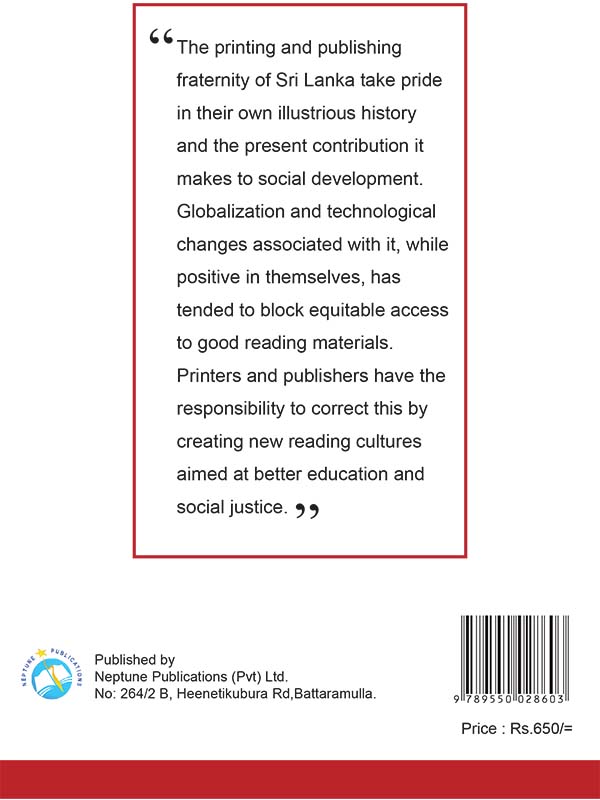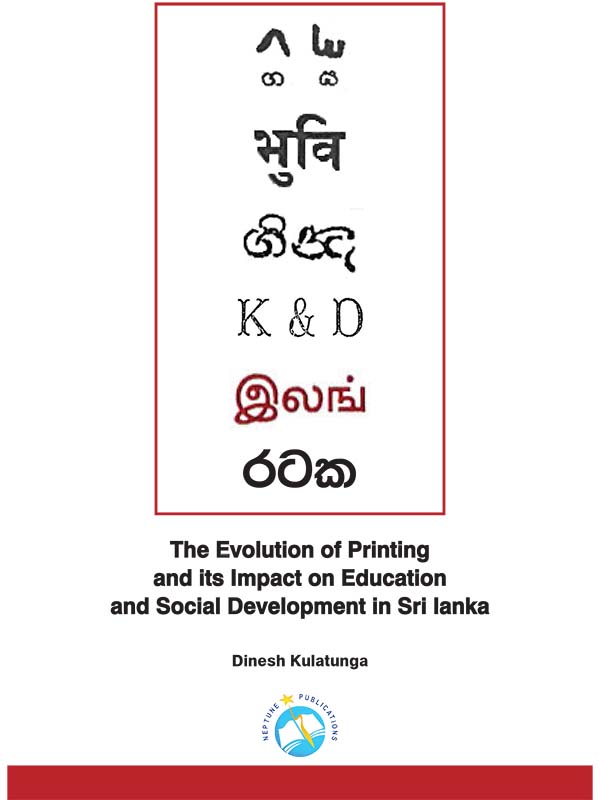Description


Introduction
The Evolution of Printing and its Impact on Education and Social Development in Sri lanka.
This booklet traces the historical development of printing and publications and the dramatic effects it had on Sri Lankan society.
The story of printing is the story of how Sri Lanka emerged from backwardness into modernity and democracy. Introduced by European conquerors it laid the basis for a social revolution by enabling information to flow quickly to all corners of society. This produced a literate and cohesive civil society and enabled people to create public opinions and mass social and democratic movements.
This was a two-way process: internal revolutionary changes it produced led to development of mass education. This in turn enabled people to intervene in the building a nation and its culture and become a part of an international culture.
Some of its social effects were profound and unforeseen. Printing of books, newspapers and periodicals introduced and extended the European scientific revolution, Enlightenment and secularism to our society, radically altering our worldview. A broad based movement for national independence developed as a consequence.
Here it is remarkable that the first strike for social justice in Ceylon in 20th century was done by printers. They not only formed an association but also began a news magazine to further their interests. This reveals the unique and pioneer role that printing has played in educational and national advancement in society.
Printing industry is, as part of global changes, today undergoing unprecedented transformations. It is again faced with massive challenges in taking the country and society into new paths of cultural development.
This short history reveals that the development of a modern civilization of Sri Lanka was for the most part, based on the contribution made by its printing industry. The printed word gave equal access to knowledge, allowing citizens to express themselves freely and mould society according to their own values.
The printing and publishing fraternity of Sri Lanka take pride in their own illustrious history and the present contribution it makes to social development. Globalization and technological changes associated with it, while positive in themselves, has tended to block equitable access to good reading materials. Printers and publishers have the responsibility to correct this by creating new reading cultures aimed at better education and social justice.
Exceptional value of printing was shown where under the Printing Presses Ordinance all the printers had to make a declaration before a magistrate at the nearest magistrate court when a new press is opened or shifted from existing location to another location. It is also compulsory to send five copies of printed books to the National Archives each month.




Reviews
There are no reviews yet.